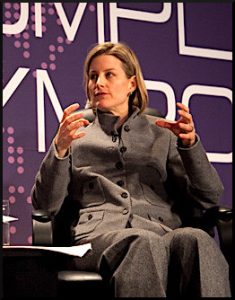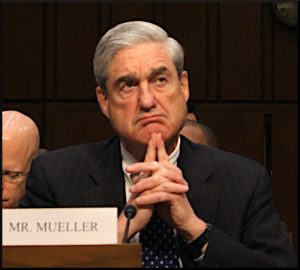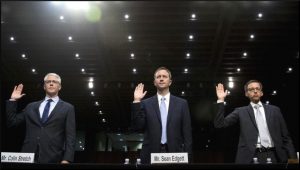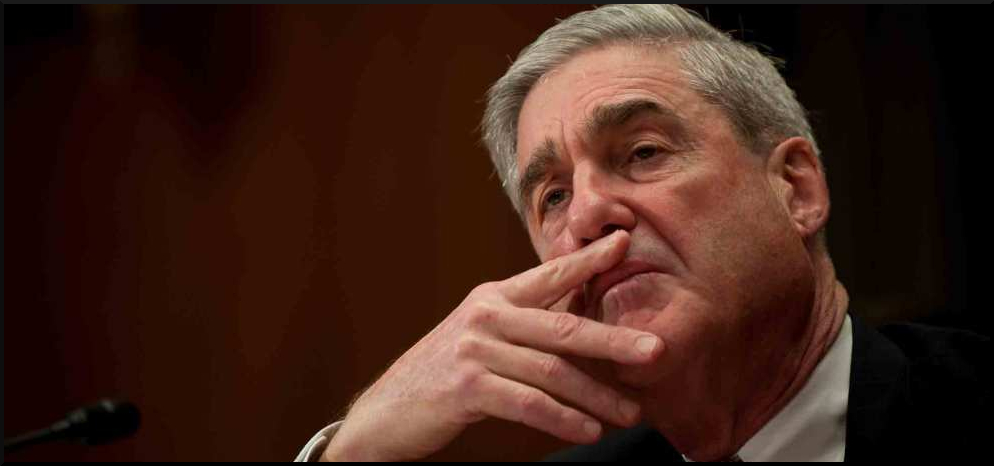Editor’s Note: I haven’t been actively following Russiagate here because it has long been my assessment that there is ‘no there there’. However, Ray has written a neat tie-up, and if it isn’t over now, I don’t know what it will take. I will have to write a ‘killing the zombie’ piece myself.
by Ray McGovern, published on Consortium News, July 16, 2019
Friday’s surprising report that Robert Mueller had successfully sought an extra week to prepare for his House testimony on Russiagate (now set for July 24) must have come as scary news to those of his fans who can put two and two together. Over the past few weeks, it has become clearer that each of the two frayed findings of Russian interference in the 2016 U.S. presidential election has now come apart at the seams.
Saturday’s New York Times reports that “the Democrats said they chose to delay at the request of Mr. Mueller” after a day of negotiations, “as both Democrats and Republicans were deep in preparations for his testimony” earlier scheduled for July 17. The Washington Post, on the other hand, chose not to say who asked for the delay. Rather, it explained the abrupt change in timing with a misleading article entitled, “Mueller, House panels strike deal to delay hearing until July 24, giving lawmakers more time to question him.”
How to Avoid Eating Crow
As the truth seeps out, there will be plenty of crow to go around. To avoid eating it, the Democrats on the House Judiciary and Intelligence Committees, the stenographers who pass for journalists at the Times and Post, and the “Mueller team” will need all the time they can muster to come up with imaginative responses to two recent bombshell revelations from the United States District Court for the District of Columbia.

Perhaps the most damning of the two came last Monday, when it was disclosed that, on July 1, Judge Dabney Friedrich ordered Mueller to stop pretending he had proof that the Russian government was behind the Internet Research Agency’s supposed attempt to interfere via social media in the 2016 election. While the corporate media so far has largely ignored Judge Friedrich’s order, it may well have been enough to cause very cold feet for those attached to the strained Facebook fable. (The IRA social-media “interference” has always been ludicrous on its face, as journalist Gareth Porter established.)
Ten days is not a lot of time to conjure up ways to confront and explain Judge Friedrich’s injection of some unwelcome reality. Since the Democrats, the media, and Mueller himself all have strong incentive to “make the worst case appear the better” (one of the twin charges against Socrates), they need time to regroup and circle the wagons. The more so, since Mueller’s other twin charge — Russian hacking of the DNC — also has been shown, in a separate Court case, to be bereft of credible evidence.
No, the incomplete, redacted, second-hand “forensics” draft that former FBI Director James Comey decided to settle for from the Democratic National Committee-hired CrowdStrike firm does not qualify as credible evidence. Both new developments are likely to pose a strong challenge to Mueller. On the forensics, Mueller decided to settle for what his former colleague Comey decided to settle for from CrowdStrike, which was hired by the DNC despite it’s deeply flawed reputation and well known bias against Russia. In fact, the new facts — emerging, oddly, from theU.S. District Court,pose such a fundamental challenge to Mueller’s findings that no one should be surprised if Mueller’s testimony is postponed again.
Requiem for ‘Interference’
Daniel Lazare’s July 12 Consortium News piece shatters one of the twin prongs in Mueller’s case that “the Russian government interfered in the 2016 presidential election in sweeping and systematic fashion.” It was the prong dripping with incessant drivel about the Kremlin using social media to help Trump win in 2016.
Mueller led off his Russiagate report, a redacted version of which was published on April 18, with the dubious claim that his investigation had
“…established that Russia interfered in the 2016 election principally through two operations. First, a Russian entity carried out a social media campaign that favored presidential candidate Donald J. Trump and disparaged presidential candidate Hillary Clinton. Second, a Russian intelligence service conducted computer-intrusion operations against entities, employees, and volunteers working in the Clinton campaign, and then released stolen documents.”
Judge to Mueller: Put Up or Shut Up
Regarding the social-media accusation, Judge Friederich has now told Mueller, in effect, to put up or

shut up. What happened was this: On February 16, 2018 a typically credulous grand jury — the usual kind that cynics say can be persuaded to indict the proverbial ham sandwich — was convinced by Mueller to return 16 indictments of the Internet Research Agency (IRA) and associates in St. Petersburg, giving his all-deliberate-speed investigation some momentum and a much-needed, if short-lived, “big win” in “proving” interference by Russia in the 2016 election. It apparently never occurred to Mueller and the super-smart lawyers around him that the Russians would outsmart them by hiring their own lawyers to show up in U.S. court and seek discovery. Oops.
The Feb. 2018 indictment referred repeatedly to the IRA simply as a “Russian organization.” But in Mueller’s report 14 months later, the “Russian organization” had somehow morphed into “Russia.” The IRA’s lawyers argued, in effect, that Mueller’s ipse-dixit “Russia did it” does not suffice as proof of Russian government involvement. Federal Judge Friedrich agreed and ordered Mueller to cease promoting his evidence-less charge against the IRA; she added that “any future violations of her order will trigger a range of potential sanctions.”
More specifically, at the conclusion of a hearing held under seal on May 28, Judge Friedrich ordered the government “to refrain from making or authorizing any public statement that links the alleged conspiracy in the indictment to the Russian government or its agencies.” The judge ordered further that
“any public statement about the allegations in the indictment . . . must make clear that, one, the government is summarizing the allegations in the indictment which remain unproven, and, two, the government does not express an opinion on the defendant’s guilt or innocence or the strength of the evidence in this case.”
Reporting Thursday on Judge Friedrich’s ruling, former CIA and State Department official Larry C. Johnson described it as a “potential game changer,” observing that Mueller “has not offered one piece of solid evidence that the defendants were involved in any way with the government of Russia.” After including a lot of useful background material, Johnson ends by noting:
“Some readers will insist that Mueller and his team have actual intelligence but cannot put that in an indictment. Well boys and girls, here is a simple truth–if you cannot produce evidence that can be presented in court then you do not have a case. There is that part of the Constitution that allows those accused of a crime to confront their accusers.”
IRA Story a ‘Stretch’
Last fall, investigative journalist Gareth Porter dissected and debunked The New York Times’s far-fetched claim that 80,000 Facebook posts by the Internet Research Agency helped swing the election to Donald Trump. What the Times story neglected to say is that the relatively paltry 80,000 posts were engulfed in literally trillions of posts on Facebook over the two-year period in question — before and after the 2016 election.

In testimony to Congress in October 2017, Facebook General Counsel Colin Stretch had cautioned earlier that from 2015 to 2017, “Americans using Facebook were exposed to, or ‘served,’ a total of over 33 trillion stories in their News Feeds.” Shamefully misleading “analysis” by Times reporters Scott Shane and Mark Mazzetti in a 10,000-word article on September 20, 2018 made the case that the IRA’s 80,000 posts helped deliver the presidency to Trump.
Shane and Mazzetti neglected to report the 33 trillion number for needed context, even though the Times’ own coverage of Stretch’s 2017 testimony stated outright:
“Facebook cautioned that the Russia-linked posts represented a minuscule amount of content compared with the billions of posts that flow through users’ News Feeds everyday.”
The chances that Americans saw any of these IRA ads—let alone were influenced by them—are infinitismal. Porter and others did the math and found that over the two-year period, the 80,000 Russian-origin Facebook posts represented just 0.0000000024 of total Facebook content in that time. Porter commented that this particular Times contribution to the Russiagate story
“should vie in the annals of journalism as one of the most spectacularly misleading uses of statistics of all time.”
And now we know, courtesy of Judge Friederich, that Mueller has never produced proof, beyond his say-so, that the Russian government was responsible for the activities of the IRA — feckless as they were. That they swung the election is clearly a stretch.
The Other Prong: Hacking the DNC
The second of Mueller’s two major accusations of Russian interference, as noted above, charged that
“a Russian intelligence service conducted computer-intrusion operations against entities, employees, and volunteers working in the Clinton campaign, and then released stolen documents.”
Sadly for Russiagate aficionados, the evidence behind that charge doesn’t hold water either.
CrowdStrike, the controversial cybersecurity firm that the Democratic National Committee chose over the FBI in 2016 to examine its compromised computer servers, never produced an un-redacted or final forensic report for the government because the FBI never required it to, the Justice Department admitted.
The revelation came in a court filing by the government in the pre-trial phase of Roger Stone, a long-time Republican operative who had an unofficial role in the campaign of candidate Donald Trump. Stone has been charged with misleading Congress, obstructing justice and intimidating a witness.
The filing was in response to a motion by Stone’s lawyers asking for “unredacted reports” from CrowdStrike challenging the government to prove that Russia hacked the DNC server.
“The government … does not possess the information the defendant seeks,”
the DOJ filing says.
Small wonder that Mueller had hoped to escape further questioning. If he does testify on July 24, the committee hearings will be well worth watching.
Featured Image: from Mother Jones ~Pete Marovich/ZUMA
Ray McGovern works with Tell the Word, a publishing arm of the ecumenical Church of the Saviour in inner-city Washington. In 1963, when he began his 27-year career as a CIA analyst, he was responsible for evaluating Soviet policy toward China and the Far East. Later, he prepared the President’s Daily Brief for Nixon, Ford, and Reagan, delivering it one-on-one to Reagans five most senior national security advisers from 1981 to 1985
